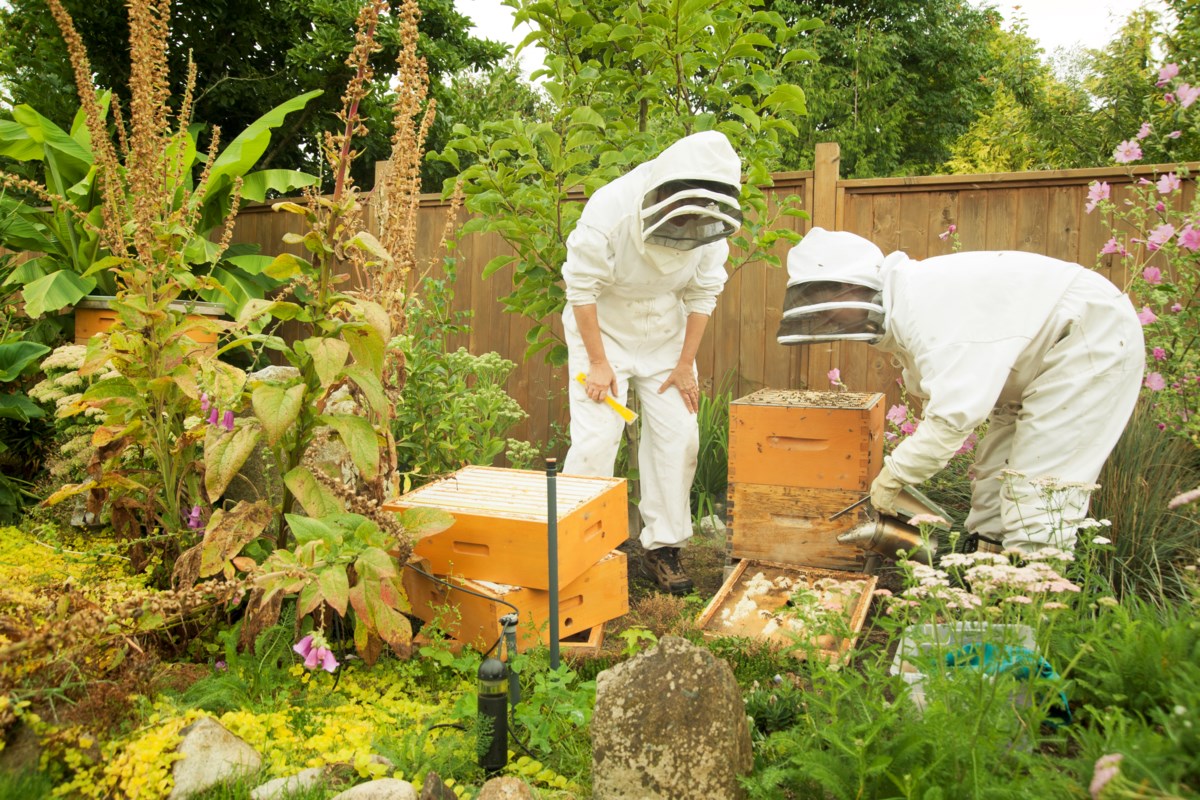Tunisian beekeeper Elias Chebbi, holds a honeycomb in one hand and a locally-made SmartBee device in the other that remotely monitors internal factors in real time and accesses key performance indicators inside his beekeepers. beehives, in the northern Tunisian region of Testour, in the Beja province, on April 8, 2022. – AFP pic
Sunday, May 22, 2022 7:40 p.m. GMT
TUNIS, May 22 — Elias Chebbi inspected a beehive in a field in Tunisia, minutes after a buzz on his phone alerted him to a potential problem.
The 39-year-old beekeeper opened a flap of the hive to reveal a low-cost, locally-made sensor dedicated to measuring key environmental variables. An app on his phone then alerts him if action needs to be taken.
“Thanks to this, I can relax,” he said. “He tells me everything that’s going on from a distance.” Chebbi owns two of the sensors, produced entirely in Tunisia by the only company of its kind in North Africa.
He periodically places one in each of the approximately 100 hives he keeps, on a grassy hill an hour’s drive from the capital Tunis.
The devices, each costing less than 300 Tunisian dinars (RM427), send live updates on the hive’s temperature, humidity and weight to a central computer.
He then analyzes the data and helps her react quickly to potential problems, as well as select the most resilient and productive queens for breeding.
This is a major plus as bee colonies face multiple threats, including climate change and the increasingly frequent collapses of entire hives.
Key role of bees
Chebbi remembers being bitten by a sudden heat wave in 2013, before he started using the system, when he lost about a quarter of his hives.
“I had big losses, 26 hives, because of the humidity and the sudden temperature change,” he said.
But since he started using the SmartBee system – developed in 2020 by a group of young Tunisian engineering graduates – his losses have dropped dramatically, to less than 10% of his hives in any given year.
He also increased his honey production by 30-40%.
Today, Khaled Bouchoucha, CEO of manufacturer Beekeeper Tech, 34, says the sensors collect “an enormous amount of information about the performance of bees and the threats they face”.
The gadgets “gather reliable data in real time, so beekeepers can make good decisions and prevent their hives from collapsing,” he said.
This data is then transmitted wirelessly to the company’s cloud computing system, which analyzes it to identify potential issues.
If so, it sends a warning to the beekeeper to intervene – by cooling overheated hives, isolating those that are dangerously cold, or providing a sugar solution to those whose weight shows they are. did not produce enough honey to survive the winter.
Beekeeper Tech has sold over 1,000 systems, mainly in Tunisia and neighboring countries.
Bouchoucha says customers are flocking to the app and company employees are preparing another 1,500 orders for customers in Libya, Algeria, Saudi Arabia and even New Zealand.
Strengthen food security
Bee populations around the world are facing a catastrophe from overuse of pesticides, mites and extreme temperatures due to climate change.
It also spells disaster for humans, as we depend on pollination by bees for more than a quarter of all the food we consume.
According to the Food and Agriculture Organization of the United Nations, three quarters of the world’s major crops depend on pollinators – but insects are in decline around the world, mainly due to human activities.
Beekeeping itself is also a vital livelihood for many.
In Tunisia, with its 11 million inhabitants, the sector employs some 13,000 people and produces some 2,800 tonnes of honey each year, according to its agricultural union.
The FAO celebrates World Bee Day on May 20 every year to raise awareness of the “essential role that bees and other pollinators play in keeping people and the planet healthy”. The SmartBee app offers more than an early warning system.
The data it collects also informs beekeepers about the health and productivity of each hive, its resistance to climate change.
Mnaouer Djemali, scientific director at Tunisia’s National Agronomic Institute and co-founder of Beekeeper Tech, said hive data “allows us to measure the profitability of each queen” and select the best one for breeding.
“It can help us strengthen our food security and food sovereignty,” he said. “We need it badly in a world full of diseases and wars.” — Studio ETX
 Xoven Agricultor
Xoven Agricultor



